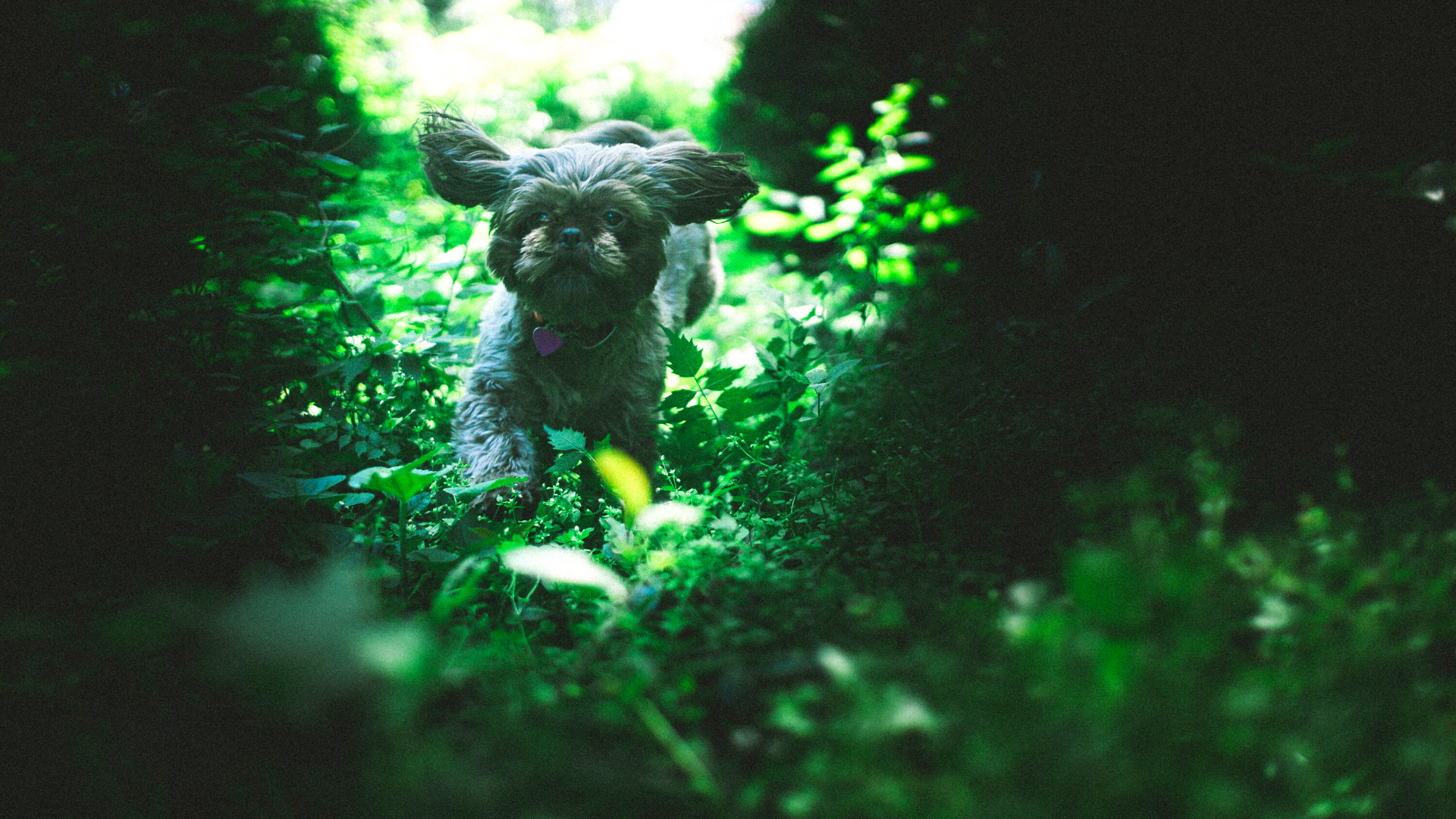Bertie is almost omnipresent in my life; we don’t like to be apart. He is my editorial assistant, my best mate and my emotional-support beast.
Bert has demonstrated profound stupidity in his short life, running off on his own, confronting dogs treble his size, and once leaping through a layer of ice on a frozen pond. He is incorrigibly dim, in some ways. Yet he is wonderfully astute in others.
Bert can, for instance, smell depression. I live with bipolar disorder and still plod through depressive episodes, despite being pleasantly medicated. When I’m distressed, Bertie can tell. If I ever go back to bed during the day, which I only really do when I’m desperate for respite from the waking world or sad in a way I can’t handle while upright, he lays himself across my chest. It feels like he’s trying to protect me, or soothe me. Therapy dogs are actually trained to do precisely this when their humans are in distress. Together, we sit out the depression. We watch reruns of Friends until the most desperate melancholy lifts.
I rely on my little white pills to keep me stable, but I’m jolly pleased to have Bert around, too, because he absolutely helps soothe me
It was lucky, then, that Bertie was with us when my local psychiatrist couldn’t prescribe my usual medication to me. Throughout that time, my main companion was Bert. When my partner Jono was home, he would tend to me, feed me, listen to me and make me feel loved and seen and held. My wonderful parents were at the end of the phone, always. My friends checked in. Jono took the morning, bedtime and weekend shifts looking after me, but Bertie was there all day, every day, snout rested tenderly on my arm or my belly or my shoulder. He had no expectations of me, except that I would give him meals, treats, walks and snuggles. His basic needs were enough to make me feel needed and accountable, but they didn’t overwhelm me.
Once I started taking my new antidepressants, I gradually started feeling able to live my life again. I started writing, I started seeing people, I started feeling joy again. I know my medication enables me to participate in my own existence, and I know, equally, that Bertie helps me heal. I rely on my little white pills to keep me stable, but I’m jolly pleased to have Bert around, too, because he absolutely helps soothe me.
Countless articles and studies from around the world attest to the health-enhancing effects of having a pet. They lower our blood pressure, reduce our production of cortisol and even help boost our immune system.
They make us less likely to suffer a heart attack, less prone to anxiety and better protected from loneliness. They also make us exercise more, in their simple requirement for walks. They contribute to our self-esteem, because being responsible for another living creature tends to bolster your sense of self-worth. They make us more sociable, because it’s almost impossible for a person to walk past a dog without saying something to their owner. Dogs force us to leave the house, which is a real gift to someone with depression, whose every instinct is to stay inside.
And then there’s the love. Having a pet is an invitation to love and be loved, without judgment, conflict, or complication.
It’s a simple, innocent love. It can be the most wonderfully healing thing for a person who lives with depression. Love is not a cure, but it’s a pretty powerful remedy for someone who has most likely lost the ability to show love for herself.
Depression tricks you into thinking you’re worthless, but a dog will always see your worth. They will love you, even if you’re absolutely no fun to be around for a while. Even when you cry or stare blankly at the television or think unkind things about yourself. And the act of loving a fluffy little being is restorative, too. It can remind you what you’re capable of, and how warm it feels to care.
I love Bert fiercely and consistently, even when I’m down. He is a small, stout mascot for my recovery, gently urging me to find a way to get better. My doting on him is one of the most reliable constants in my life, no matter what emotional turmoil I’m in. His presence is a gift and a tonic and I simply wouldn’t do without him.
Good Dog: Celebrating dogs who change, and sometimes even save, our lives by Kate Leaver is out now (HarperCollins)









